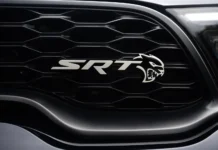Carlos Tavares has been Stellantis’ CEO since the company originally formed in 2021.
Three years after its initial formation from Fiat Chrysler (FCA) and Peugeot PSA, Stellantis has been struggling with sales figures, profit margins and unhappy dealers. While its CEO threatened the company could jettison some of its brands that aren’t pulling their financial weight, it appears that may not be enough to secure his long-term future with the company. This week, reports emerged that Stellantis Chairman John Elkann is searching for a new executive to helm the one of the world’s largest automakers, and will not renew Tavares’ current contract when it expires in early 2026.
According to a report from Automotive News (also citing Bloomberg, which broke the news):
Pressure on Tavares is rising due to Stellantis’ poor performance in markets including the U.S., its biggest single profit pool. Elkann has no plans for an immediate leadership change and Tavares will be included in the search process, according to people familiar with the matter.
Elkann, according to the report, is “increasingly dissatisfied with the situation in North America”, a market in which sales have been lackluster in recent months. In its July 2024 reports, company-wide sales — including the Alfa Romeo, Chrysler, Dodge, Fiat, Jeep and Ram brands — were down 16%, while most of its rivals actually gained ground over the first half of the year versus the same period in 2023. The company’s slumping sales have also impacted its stock value, which has dropped by a third throughout this year.
Prior to his tenure with Stellantis, Tavares was involved with other major automakers including Renault and Nissan. He became CEO of Peugeot PSA (or Groupe PSA) in 2014, implementing cost-cutting measures and expanding the company’s presence in the Chinese market. He also oversaw the spinoff of DS Automobiles into a standalone brand and the takeover of the Opel and Vauxhall brands from GM in 2017. With the merger of the two car conglomerates into Stellantis in 2021, the resulting Netherlands-based company presently has 14 individual brands under its umbrella.


























